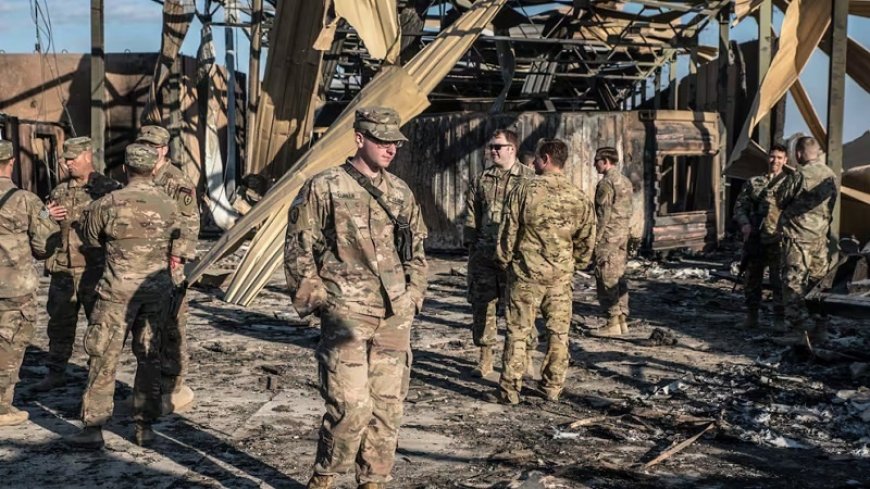Drone Attack on US Airbase in Iraq Ahead of Key Diplomatic Talks
The Ain al-Asad air base, housing US troops in Iraq, came under drone attack last Tuesday, just a week before a high-level delegation from the Iraqi military is scheduled to visit Washington.

The Ain al-Asad air base, housing US troops in Iraq, came under drone attack last Tuesday, just a week before a high-level delegation from the Iraqi military is scheduled to visit Washington. The delegation's visit aims to continue discussions about the withdrawal of the US-led military coalition from Iraq.
Witnesses reported several explosions at the base, located in the western region of Anbar, following the attack by two drones. As of now, there has been no official report detailing the extent of the damage, and no group has claimed responsibility for the assault.
This incident is the latest in a string of attacks targeting US bases in Iraq and Syria, attributed to growing tensions over Washington's support for Israel in the ongoing conflict with Palestine. The timing of the attack is particularly sensitive, occurring just days before critical talks in Washington on the future of US military presence in Iraq.
Background and Implications
The Ain al-Asad air base has been a frequent target in the past, reflecting the broader regional discontent with US military operations in the Middle East. In January of this year, Baghdad and Washington agreed to establish a committee to negotiate a timetable for the gradual withdrawal of US forces from Iraq. This committee is part of ongoing efforts to address Iraqi demands for sovereignty and the removal of foreign troops from their soil.
Iraqi Prime Minister Mohammad Shia al-Sudani and other officials have been vocal about their desire to see American troops leave the country. Opposition groups within Iraq have echoed these sentiments, urging for the expulsion of foreign forces. These groups argue that the presence of the US military, which began with the 2003 invasion under the false pretext of Iraq possessing weapons of mass destruction, continues to infringe upon Iraq's sovereignty and stability.
Regional and International Reactions
The drone attack on Ain al-Asad has heightened tensions in an already volatile region. It underscores the fragile security situation in Iraq, where various factions and external actors vie for influence. The international community is closely monitoring the situation, as any escalation could have far-reaching implications for regional security and diplomatic relations.
Future Prospects
The upcoming talks in Washington are crucial for charting the course of US-Iraq relations. The discussions are expected to address not only the timeline for troop withdrawal but also broader aspects of cooperation, including economic aid, counterterrorism efforts, and political support. Both sides are under pressure to reach a consensus that balances Iraqi sovereignty with the strategic interests of the United States in the region.
As the situation develops, the world watches with bated breath, hoping for a resolution that can bring stability and peace to Iraq and its people.













































